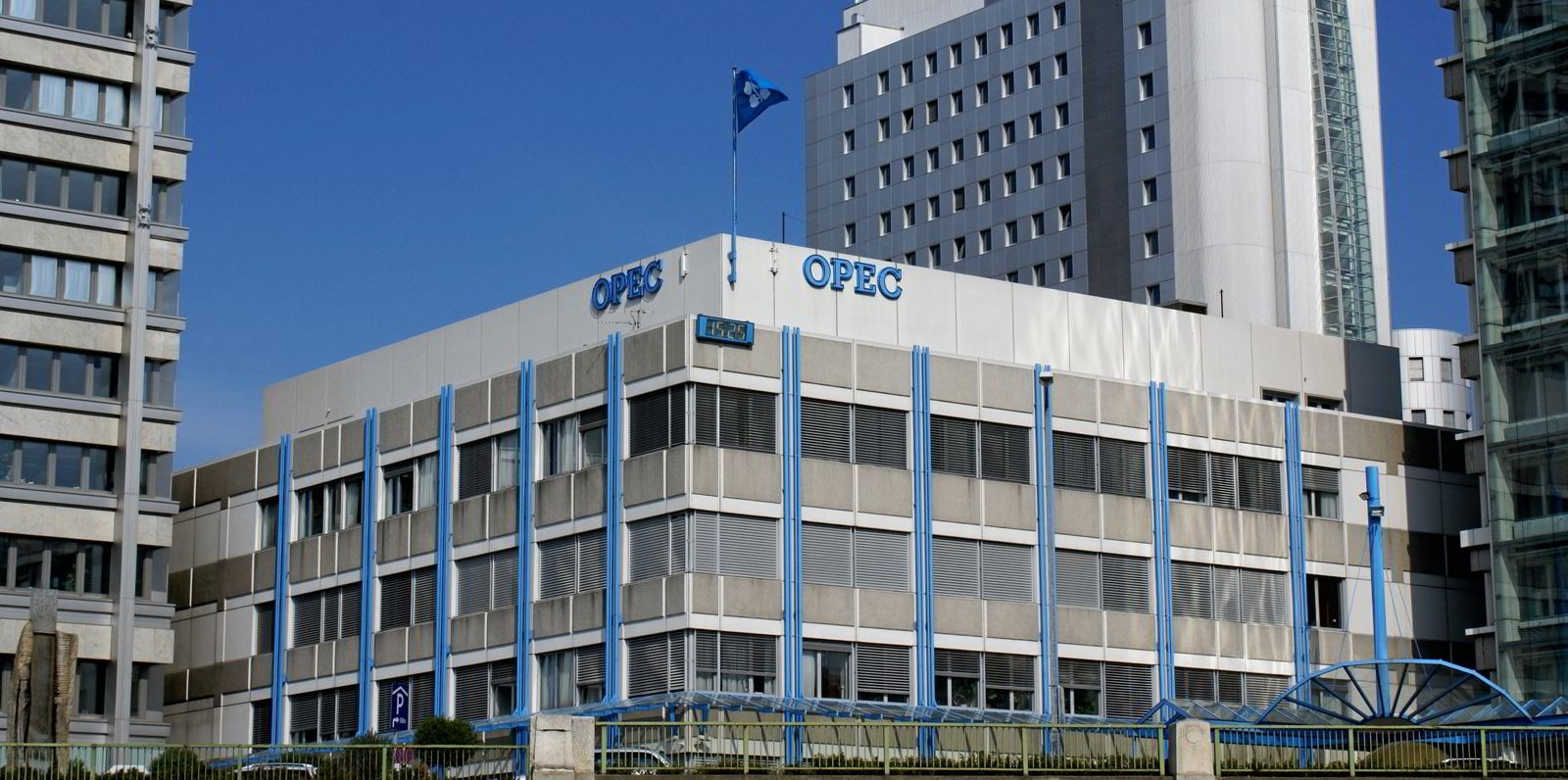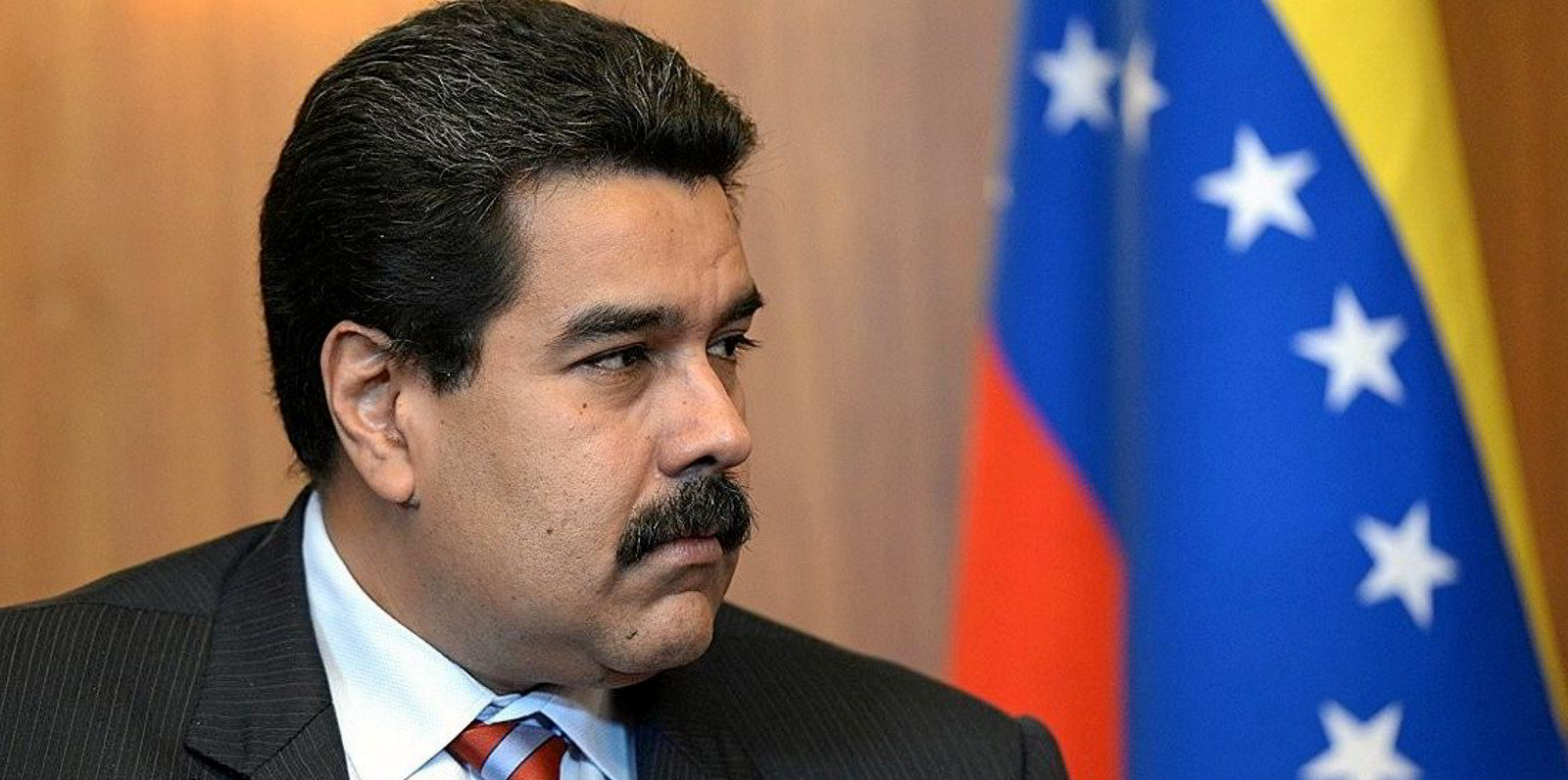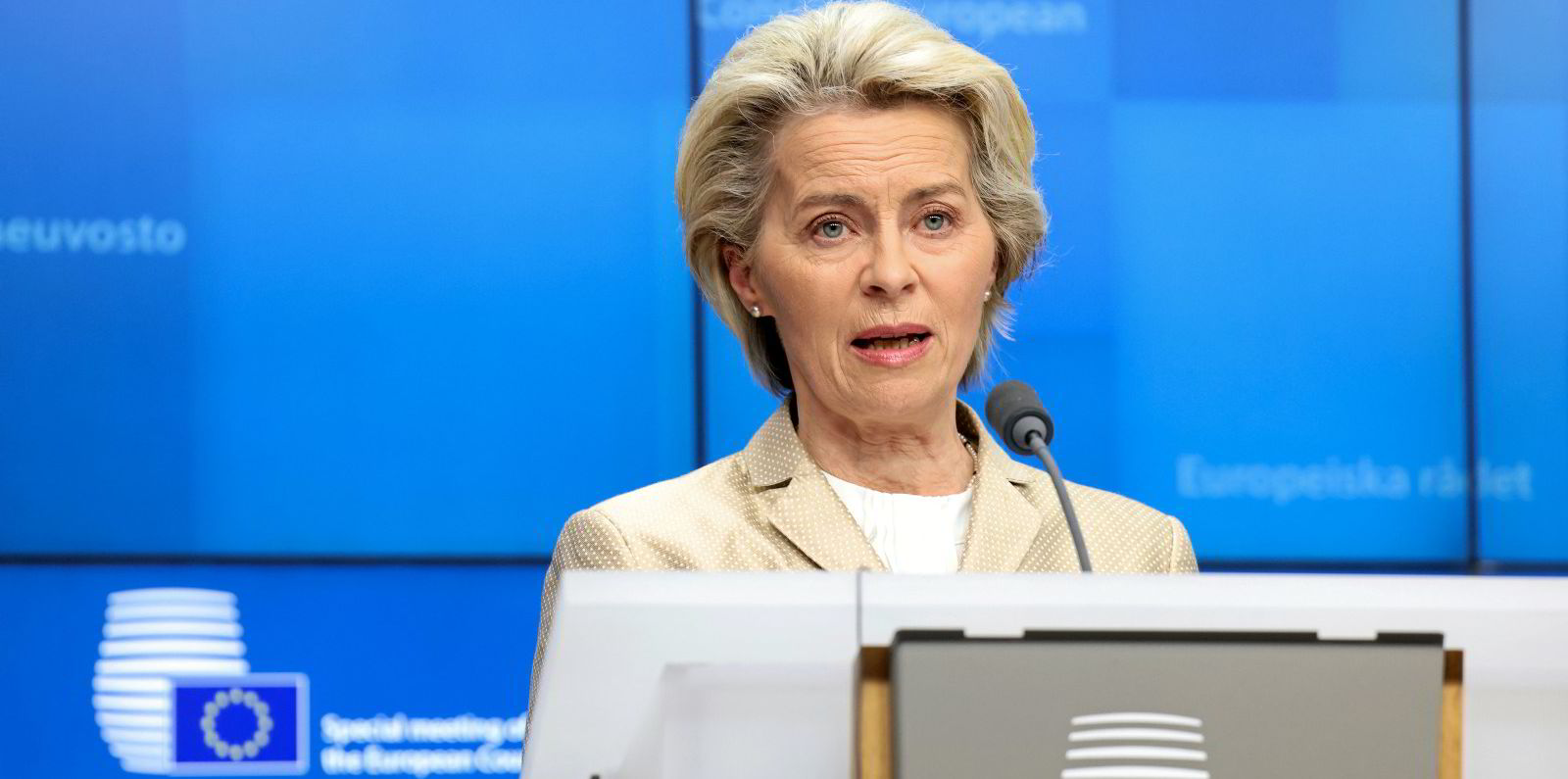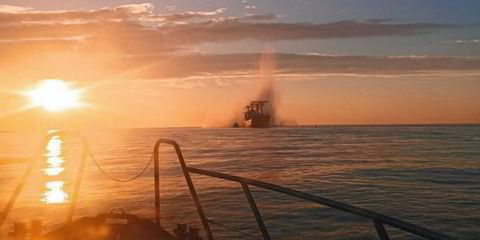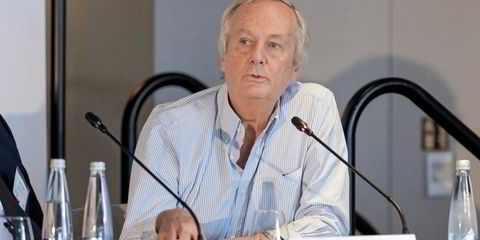The Opec+ group of oil exporters has raised its production quota again, but no decision has yet been taken on Russia’s continuing participation.
The output ceiling will increase by 648,000 barrels per day in July and August, up from 432,000 bpd previously.
Reports said there was no debate about exempting Russia from its Opec+ commitments.
Saudi Arabia and other members stand ready to pump more crude if Russian output falls, the Financial Times reported. This could mean up to an extra 1m bpd being released into the market.
Russian oil output is said to have fallen to 1.3m bpd less than the country’s quota in April.
Clarksons Platou Securities has calculated that a 2% potential improvement in tanker utilisation from a 1m bpd rise in output could support VLCC earnings of $35,000 per day.
“If this happens, it could be a shot in the arm for tankers, particularly VLCCs,” analysts Frode Morkedal and Even Kolsgaard said.
Rates are averaging -$7,400 per day currently, with a scrubber premium equal to $19,700 per day, the investment bank has assessed.
Fearnley Securities saw the hike as a likely counter-measure to new European Union sanctions on Russian oil.
“However, given the group’s history of under-compliance, it remains to be seen what the final effect will be, a concern seemingly also shared by the market,” analysts Oystein Vaagen, Erik Gabriel Hovi and Ulrik Mannhart said.
A barrel in the ocean?
Prompt Brent crude prices remained largely flat after the deal at $117 per barrel.
According to S&P Global, Opec+ was 2.6m bpd short its production targets in April.
Fearnleys sees the output rise as “seemingly just a barrel in the ocean” in filling the gap from Russian crude production.
“However, should the volumes actually come it would naturally be a positive for the lagging crude sector,” the analysts said.
Product tankers are already thriving so far this year.
Bob McNally, president of Washington-based consultancy Rapidan Energy Group, called the deal “an elegant threading of the needle” that satisfies Opec, Russia and the Biden administration in the US.
